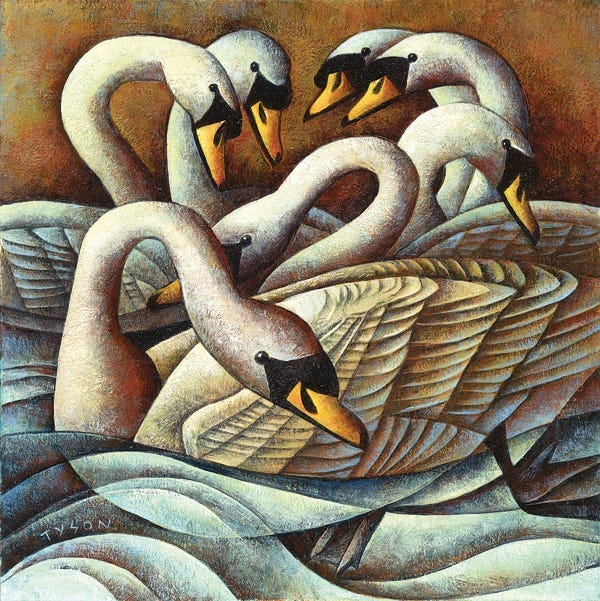My sister’s and I were supposed to see Celtic Woman this year, back in March. It was cancelled, of course. As was an Alannis Morisette concert that I was to go to with some friends.
Here’s a little video explanation of “Auld Lang Synge.”
Auld Lang Synge, as you probably know, is a Scots language poem written by Robert Burns. The song was set to a traditional tune and has become the song to sing at the stroke of midnight on New Year’s Eve. Some of the lyrics, according to Burns, came from an old man, and the song does have some similarities to other songs from that time so some version of “Auld Lang Synge” must have existed and Burns’ spruced up the lyrics. Here are Burns’ original Scots lyrics, should you need them later this evening":
Should auld acquaintance be forgot,
and never brought to mind?
Should auld acquaintance be forgot,
and auld lang syne?
Chorus:
For auld lang syne, my jo,
for auld lang syne,
we'll tak' a cup o' kindness yet,
for auld lang syne.
And surely ye'll be your pint-stoup!
and surely I'll be mine!
And we'll tak' a cup o’ kindness yet,
for auld lang syne.
Chorus
We twa hae run about the braes,
and pou'd the gowans fine;
But we've wander'd mony a weary fit,
sin' auld lang syne.
Chorus
We twa hae paidl'd in the burn,
frae morning sun till dine;
But seas between us braid hae roar'd
sin' auld lang syne.
Chorus
And there's a hand, my trusty fiere!
and gie's a hand o' thine!
And we'll tak' a right gude-willie waught,
for auld lang syne.
Chorus
Robert Burns was born in 1759 in Alloway, Ayrshire, Scotland, and died in Dumfries, Scotland, at the age of 37. He was one of the first Romantic poets and has inspired many writers throughout the ages. He’s a national hero among the Scots. Burns grew up in poverty and received very little formal education…most of his learning came from his father, who taught his seven children reading, writing, arithmetic, geography, and history. He also wrote them A Manual for Christian Belief. Burns did spend some time in school and with a tutor, which I find amazing. Despite the poverty they lived in and the hard life of farming, Burns’ parents obviously valued education enough to sacrifice so their children could obtain one. Burns went on to lead an interesting, and difficult life, and to write some of the most beautiful and lasting poems of all time.
I remember studying his poem, A Red, Red Rose, in high school. If you want to get teenage girls to read and learn to love poetry, this poem is not a bad place to start:
A Red, Red Rose
O my Luve is like a red, red rose That’s newly sprung in June;
O my Luve is like the melody
That’s sweetly played in tune.So fair art thou, my bonnie lass,
So deep in luve am I; And I will luve thee still, my dear,
Till a’ the seas gang dry.Till a’ the seas gang dry, my dear,
And the rocks melt wi’ the sun; I will love thee still, my dear,
While the sands o’ life shall run.And fare thee weel, my only luve!
And fare thee weel awhile!
And I will come again, my luve,
Though it were ten thousand mile.
It truly is lovely.
And surely must have inspired one my favorite songs about tramping across many miles for love..
I remember this being played at the wedding of my friends, Georgina and Paul. I believe the band, Blackthorn, played it as 100+ of us jumped and sang and danced and celebrated at one of the funnest weddings for one of the best couples.
A song by The Proclaimers that I like even more is, Sunshine on Leith. Here it is:
On the seventh day of Christmas, my true love gave to me, seven swans a swimming…the 7 gifts of the Holy Spirit, the 7 sacraments…
So good night and God bless to you all and good riddance to 2020…



